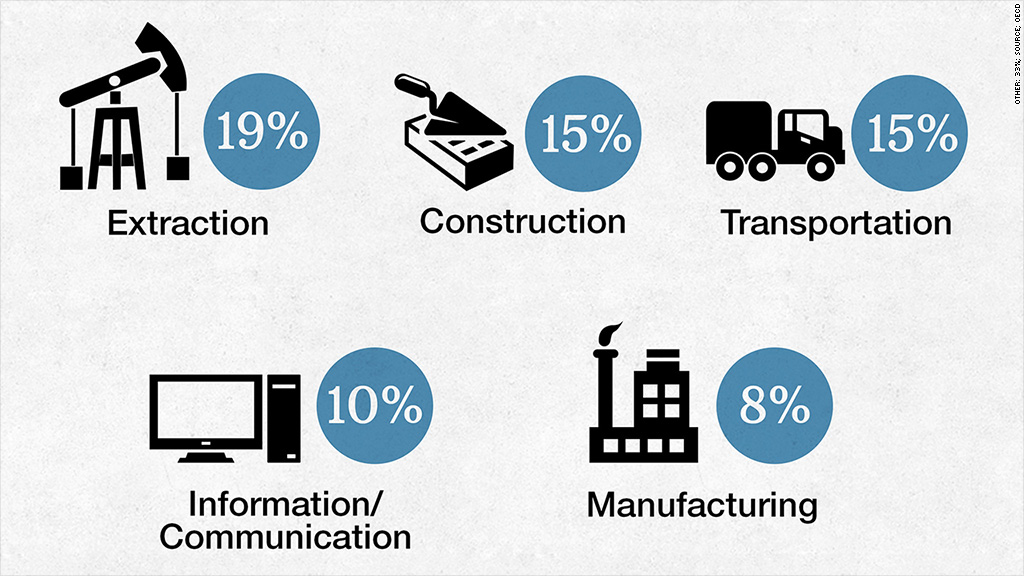
Drilling for oil and digging for minerals can be dirty, in more ways than one.
Known as the extractive sector, oil and mining tops a new list of the world's most corrupt industries. Construction and transportation make up the top three, according to a report by the Organization for Economic Co-operation and Development.
The OECD analyzed 427 cases of bribery in international business.
Two-thirds of the cases occurred in just four industries: extractive (19%); construction (15%); transportation and storage (15%); and information and communication (10%).
Senior executives were involved in more than half the cases, with chief executives playing an active role in 12%. They either paid the bribes themselves, or authorized them, the OECD found.
Related: China fines GlaxoSmithKline nearly $500 million for bribery
Public sector employees and those working for state-owned companies were most likely to be the target of corruption. They were promised, offered or given bribes in 80% of the cases.
These included top politicians, such as government ministers, and presidents of state companies. Officials working in customs, health and defense were also likely to be on the receiving end.
Not surprisingly, the higher-ranking the official, the bigger the bribe. While heads of states and ministers were bribed in only 5% of the cases, they received 11% of total bribes.
Customs officials on the other hand, were targeted in 11% of cases, but pocketed little more than 1% of the bribes.
All of the cases looked at by the OECD have been prosecuted and reached a final judgment.
Nearly a third were brought to the attention of the authorities by companies that often uncovered bribes during internal audits or when combing through accounts before a merger or acquisition.
Whistleblowers, on the other hand, were involved in only 2% of the cases.
